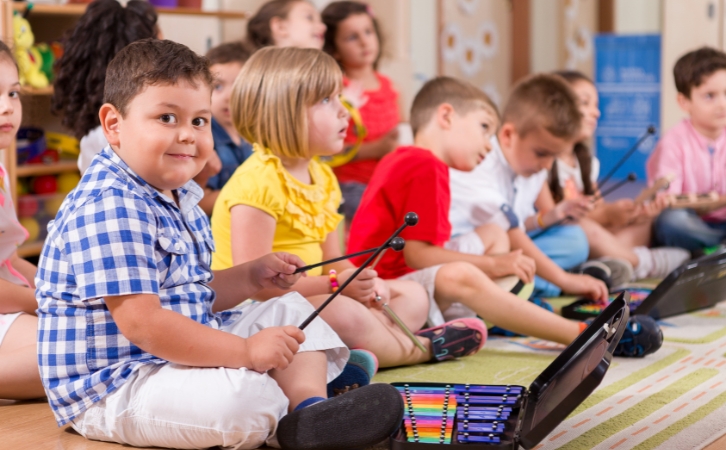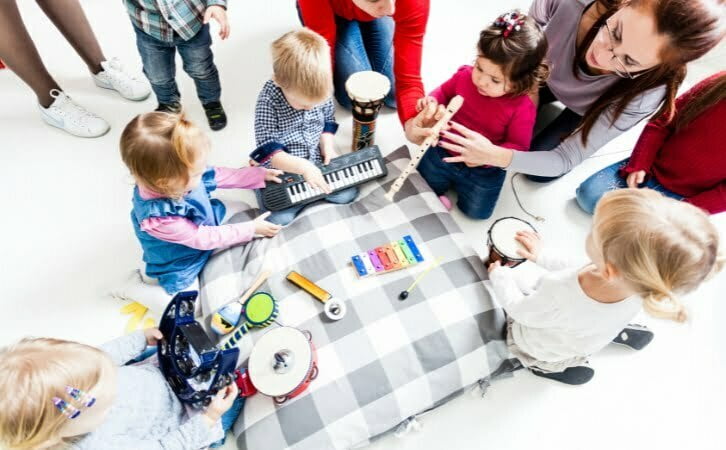Music has been an integral part of human life since ancient times, and it continues to be an essential aspect of our culture and society.
Apart from being an art form that can evoke a wide range of emotions and feelings, music can also profoundly impact a child’s development and overall well-being. Why Is Music Education Important For Kids?
There has been growing research on the benefits of music education for kids in recent years, and the results are impressive. In this article, we will explore the many benefits of music education for children and why it is essential to incorporate music into their lives.
Read Here: Everything You Need To Know About Throwing A Kid’s Birthday Party
Benefits Of Music Education |Why Is Music Education Important For Kids?
Here are some benefits of music education for kids:
Cognitive Development
Numerous studies have shown that music education can positively impact a child’s cognitive development. Playing an instrument or singing can help improve memory, attention, and overall brain function.
Music simultaneously engages multiple brain areas, including motor skills, language, and emotional processing.
Learning music can also enhance problem-solving skills, critical thinking, and creativity, which can benefit all aspects of life.
Read Here: The Benefits Of Reading Aloud To Kids
Emotional Development

Music is a powerful tool for emotional expression and regulation. Playing an instrument or singing can help children express their emotions healthily and constructively. It can also help them develop emotional awareness and empathy, improving their relationships with others.
Moreover, music can be a source of comfort and relaxation, reducing stress and anxiety, promoting a sense of well-being, and improving overall mental health.
Read Here: mindfulness activities for Kids
Social Development
Music education can also positively impact a child’s social development. Playing an instrument or singing often involves working in groups or ensembles, which can help children develop social skills such as communication, collaboration, and teamwork.
Additionally, participating in music education programs can provide children with opportunities to interact with peers with similar interests, leading to long-lasting friendships.
Academic Achievement

Music education can positively impact a child’s academic achievement. Learning music requires discipline, focus, and perseverance, transferable skills that can be applied to other areas of learning.
Moreover, music education has been linked to improved performance in math, science, and language arts. This is because music involves complex skills, including reading, comprehension, and problem-solving, which can enhance overall academic achievement.
Read Here: How To Encourage Creativity In Kids?
Cultural Awareness
Music is an essential part of our cultural heritage, and learning about different musical styles and traditions can help children develop a sense of cultural awareness and appreciation.
Exposure to diverse music can broaden a child’s horizons, improve their understanding of different cultures and perspectives, and promote a sense of global citizenship.
Moreover, learning about different musical styles and traditions can inspire creativity and innovation, which can be valuable in all aspects of life.
Things To Mind While Giving Music Education To Kids

Here are some things to keep in mind while giving music education to kids:
- Age-appropriate material: Make sure the music and teaching material is appropriate for the child’s age and experience level. Younger children may need more visual aids and simpler language, while older children may be able to handle more complex musical concepts.
- Patience and positive reinforcement: Learning music can be challenging and frustrating sometimes, so it’s important to be patient and provide positive reinforcement. Encourage children to practice regularly and celebrate their progress.
- Personalization: Every child has unique interests and learning styles, so it’s important to personalize the music education experience to fit the child’s needs. Consider incorporating their favorite songs or instruments into the lessons.
- Consistency: Regular practice and consistency are key to improving music education. Set aside dedicated time for music lessons and practice, and stick to a regular schedule.

- Encouraging creativity: Music is a creative art form, so encourage children to experiment and explore different sounds, rhythms, and melodies. Allow them to express themselves through music and provide opportunities for them to create their own compositions.
- Balance: While music education is important, it’s also important to maintain a balance with other areas of a child’s life, such as schoolwork, social activities, and playtime. Ensure that music lessons and practice do not overwhelm or interfere with other important areas of a child’s life.
- Positive attitude towards music: Children are more likely to enjoy and continue with music education if they have a positive attitude towards it. Encourage a love for music and the arts in general by attending concerts and performances, listening to music together, and exposing children to different genres and styles of music.
The Benefits of Music Education for Children Extends Beyond Childhood – video
Conclusion
Music education is a valuable and essential part of a child’s development. From cognitive and emotional development to social skills and academic achievement, music education can profoundly impact a child’s overall well-being.
Moreover, exposure to different musical styles and traditions can promote cultural awareness and appreciation, essential in today’s globalized world.
herefore, parents and educators must incorporate music into children’s lives and provide them with opportunities to learn and explore music.
Whether learning to play an instrument, sing in a choir, or simply listening to diverse music, music education can enrich a child’s life in countless ways.
reference
Music Education Important


